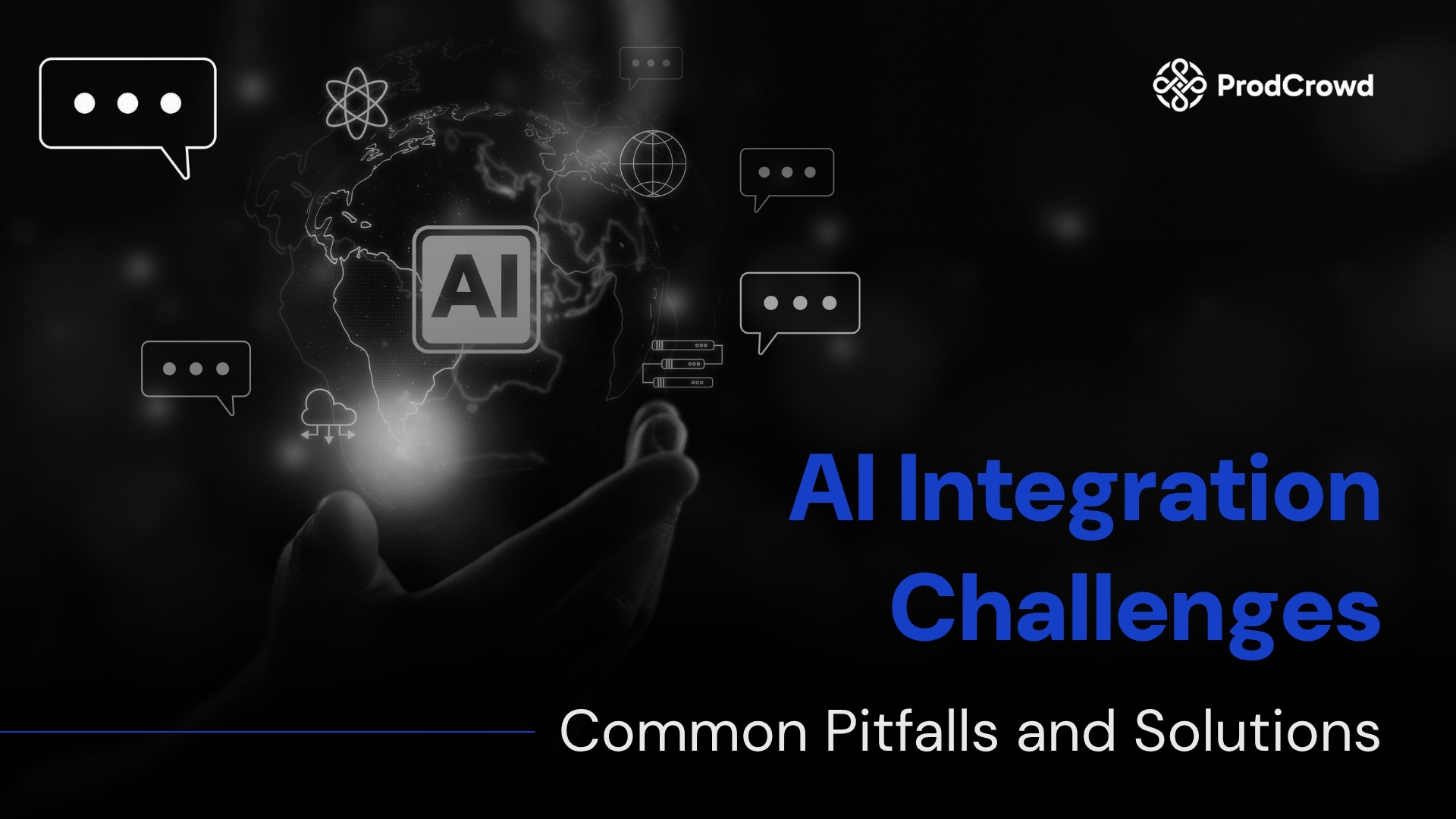Artificial Intelligence (AI) is transforming industries by automating processes, improving decision-making, and delivering new business opportunities. Yet, despite its potential, many organizations struggle with the challenges in AI integration services. Poor data quality, legacy system compatibility, and unrealistic expectations often stand in the way of success.
In this article, we’ll explore the most common AI challenges businesses face, why they occur, and practical solutions for overcoming them. By the end, you’ll understand how to avoid costly pitfalls, ensure smooth implementation, and leverage expert support from a trusted AI development company.
1. Key Challenges in AI Integration Services
1.1 Data Quality and Accessibility
AI systems depend on clean, structured, and unbiased data. Unfortunately, many organizations deal with scattered, incomplete, or outdated datasets. Gartner estimates that 80% of AI projects fail due to poor data quality.
Solution: Develop a strong data strategy that includes governance policies, automated cleansing, and enrichment practices. Leveraging professional AI integration implementation services ensures your data pipelines are prepared for long-term success.
1.2 Compatibility with Legacy Systems
Businesses often struggle to integrate AI into existing infrastructures, particularly when legacy systems were never designed to work with modern technologies.
Solution: APIs and middleware can bridge these gaps. In complex cases, custom connectors may be required, ensuring smooth integration without disrupting critical operations.
1.3 High Implementation Costs
Deploying AI can be costly. Expenses include infrastructure, cloud resources, and specialist staff. For small and mid-sized companies, these costs can appear prohibitive.
Solution: Start with smaller projects and use cloud-based AI services to reduce upfront investment. This phased approach allows organizations to measure ROI before scaling further.
1.4 Talent Shortages
The demand for AI specialists far exceeds supply. Hiring data scientists, ML engineers, and AI architects is not only competitive but also expensive.
Solution: Instead of building large in-house teams, many companies turn to external partners who provide the expertise needed to manage the end-to-end integration process.
2. Technical AI Challenges During Implementation
2.1 Model Bias and Accuracy
AI outcomes are only as reliable as the data they’re trained on. Biased data can lead to skewed predictions, affecting fairness and accuracy.
- Solution: Regularly retrain AI models with diverse, up-to-date data. Establish monitoring processes to evaluate accuracy against defined KPIs.
2.2 Scalability Issues
A pilot AI project may work well in testing, but scaling across an enterprise introduces challenges with infrastructure, latency, and processing power.
- Solution: Deploy cloud-native AI systems that scale seamlessly as workloads grow, without requiring heavy hardware investments.
2.3 Security and Compliance Risks
AI frequently processes sensitive data, raising concerns around GDPR, HIPAA, and other compliance frameworks.
- Solution: Encrypt data, implement access controls, and design AI workflows that comply with industry standards. Ongoing audits are essential.
3. Business Pitfalls in AI Adoption
3.1 Misaligned Expectations
AI is often misunderstood as an instant fix. Executives may expect rapid ROI without appreciating the need for time, data maturity, and iterative learning.
- Solution: Define realistic timelines and KPIs that align with broader business goals. This avoids disillusionment and ensures focus on measurable outcomes.
3.2 Employee Resistance to Change
AI adoption can trigger resistance among staff, who may worry about job displacement or struggle to adapt to new tools.
- Solution: Focus on training and communication. Show employees how AI enhances productivity by removing repetitive tasks, allowing them to focus on high-value work.
3.3 Lack of Ongoing Maintenance
AI is not a one-off implementation. Without continuous monitoring and updates, model performance declines and errors increase over time.
- Solution: Establish governance frameworks and commit to ongoing optimization. Treat AI systems as living assets that require regular attention.
4. Proven Solutions for Overcoming AI Challenges
4.1 Start with Pilot Projects
Launching AI across an organization all at once is risky. Begin with targeted use cases, evaluate impact, and expand gradually.
4.2 Use Scalable Cloud-Based AI Services
Cloud platforms provide flexibility, cost efficiency, and faster deployment cycles, making them ideal for businesses of all sizes.
4.3 Partner with AI Experts
An experienced partner helps avoid costly missteps, accelerates deployment, and ensures AI aligns with both technical and strategic goals.
4.4 Prioritize Data Governance
Data quality should be the foundation of any AI project. Organizations should:
- Create clear data governance frameworks.
- Standardize collection and storage methods.
- Integrate external datasets to improve insights.
4.5 Build an AI-Ready Culture
Organizational readiness is just as important as technology. Encourage cross-department collaboration, provide AI training, and highlight how AI contributes to growth.
Conclusion
AI is a transformative force, but the challenges in AI integration services can create barriers if not properly addressed. From technical issues like bias and scalability to business concerns such as employee resistance and unclear expectations, successful AI adoption requires careful planning and strategic execution.
The good news is that with the right approach—phased implementation, strong data governance, and expert guidance—organizations can overcome these hurdles. Exploring tailored AI integration implementation services provides the framework for success, while partnering with a reliable AI development company ensures long-term support.
By addressing challenges head-on, businesses can unlock the full potential of AI and create smarter, more competitive operations.
5. FAQs on Challenges in AI Integration Services
Q1. What are the biggest AI challenges businesses face?
The most common include poor data quality, integration with legacy systems, high costs, and lack of AI expertise.
Q2. How can organizations reduce AI integration costs?
By starting small with pilot projects and using scalable, cloud-based services instead of building costly on-premise infrastructure.
Q3. Are AI systems secure for sensitive data?
Yes—when designed with compliance frameworks, encryption, and strict monitoring in place. Ongoing audits further enhance security.
Q4. Do small businesses benefit from AI services?
Absolutely. Even small businesses can leverage AI help for automating tasks, gaining customer insights, and improving efficiency.
Q5. Why is expert support important for AI integration?
Working with professionals ensures AI systems are designed, implemented, and maintained effectively, reducing the risk of costly failures.

